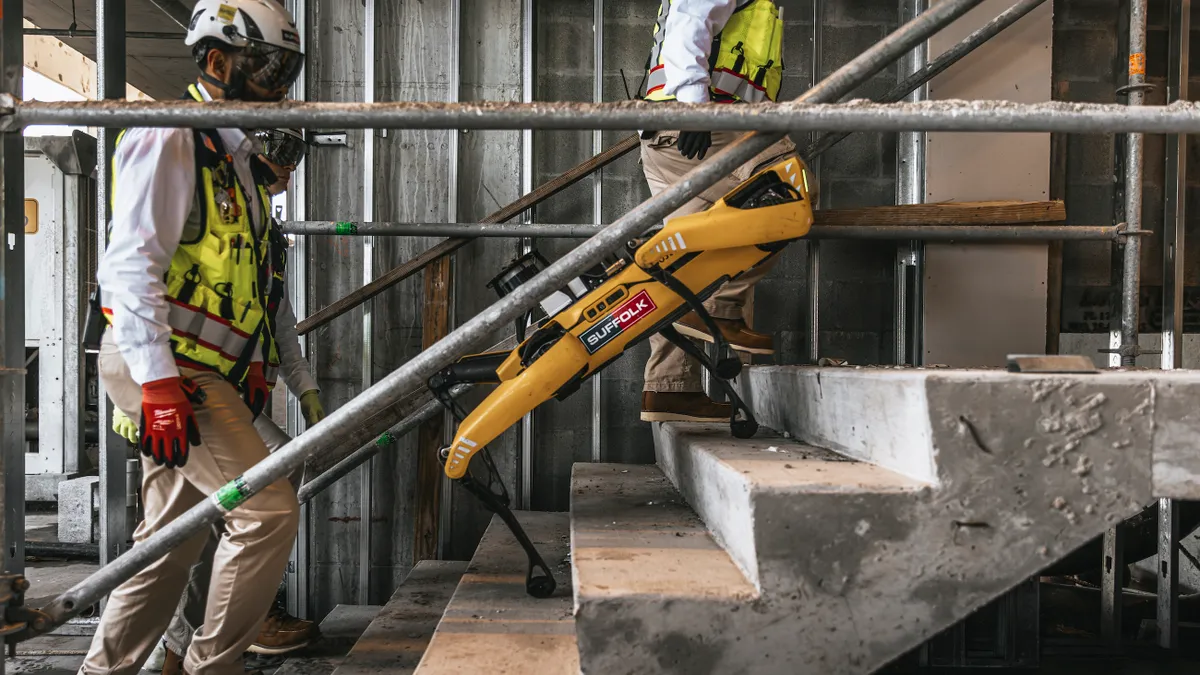Most residential contractors, from large or small companies, have experienced difficult customers. In these situations, no matter what the contractor does, the clients are never happy, and it seems like signing the contract was simply the sound of a starting pistol in a race the contractor can never win.
Therefore, contractors might find themselves wondering if there’s any way to reduce or eliminate these difficult customer experiences. The most obvious answer is to make sure to produce a good, quality product. Even if that’s the case, they probably won’t be able to do away with troublesome projects altogether. But they can certainly reduce their chances of a customer relationship going south, and they can even learn to handle those relationships so no one ends up miserable.
The first line of defense
Attorney Thomas Baylis, a partner with Cullen and Dykman LLP, said the first line of defense is learning to read the customer before signing a contract, and especially before work begins. He said the preconstruction phase should be the most exciting time for homeowners, meaning that this is also when they should be the most involved and engaged with their contractor.
"If they call you for an estimate, and you don’t hear back from them, then another two months later they call you and ask you to come out again, and then all of a sudden it’s a rush job, but no one’s ever home, these are bad signs," he told Construction Dive.
Customer relations expert Wesley Higbee, of Full City Technology Co., said pricing can also play a major role in determining what kind of customer relationship a contractor will end up with. "When you’re in a race to the bottom with prices, you’re eliminating your ability to provide good customer service. If there’s no profit, there’s no room to absorb any number of things that go wrong in business," he told Construction Dive. This can all lead to customers feeling that they aren't being given enough attention, according to Higbee.
Carlos de Leon — of the Leon Group in New York, a family run business that provides everything from estate management to full additions — said that it’s not only about customer attitude. The preconstruction phase is also a time when the contractor needs to stop and decide what kind of relationship they want with the customer.
"These people that you’re meeting with are thinking of spending their hard-earned money with you, and you have a duty, a moral responsibility, to put your best foot forward and deal with them in the most professional manner," de Leon told Construction Dive. He added that the contractor has equal responsibility in creating a good working relationship and that "you have to put everything aside to be the expert you’re supposed to be for (the client)."
3 steps for success after signing the contract
Once a contractor has decided to enter into an agreement with the customer, Baylis said that the magic formula to help ensure a good customer experience and a successful project is three-fold:
- Excellent communication
- Management of expectations
- Thorough documentation
Communication
Mike Shina, construction manager at Windsong Properties near Atlanta, said communication, particularly at preconstruction meetings, is a priority. "We always strive to communicate and to inoculate our buyers against things that can go awry during construction," he told Construction Dive. Shina said his team addresses everything from bad weather contingencies to the possibility of someone installing the wrong window. "We let them know that it’s not a perfect process, but that we do have measures in place to correct these things," he said.
Good communication creates a sense of security for the homeowner, according to Paul Cardis, founder of customer loyalty management firm Avid Ratings, which has a significant focus on the homebuilding industry. This security, or "service certainty," helps to reassure the client that the contractor will be there for them during the construction process, and that they are going to try to make things right if the situation warrants it, according to Cardis. Certainty is particularly important in construction because for many homeowners, it’s "scary" to hire a contractor, Cardis noted. He said services like Angie’s List make millions by providing that certainty for a fee.
Managing expectations
One of the biggest benefits of clear communication is that it manages customers' expectations, or the results they are anticipating.
De Leon said misunderstandings can be avoided by explaining to the client exactly what a contractor can and cannot do in very specific terms. "If you don’t tell the truth right off the bat about what you can actually provide, you’re going to ruin the relationship, and then they have every right to be mad down the line," he said. He added that in order to know what the customer’s true expectations are, sometimes it's necessary to "dig deep." De Leon said this is also the time to be realistic about a schedule — not to promise a delivery date that’s unachievable.
Documentation
Of course, all of this open communication and discussion has to be backed up in writing "just in case" things aren’t so rosy with a customer as the project progresses.
Baylis said solid documentation practices start with a "plain English" contract that defines, in as much detail as possible, the responsibilities of both the homeowner and the contractor. Baylis said he always cautions against purchase order agreements as the only contract because they typically leave too much to interpretation.
To avoid a "he said, she said" impasse down the road, it's critical to "document everything," according to Baylis. "Some people are mean and some people will try to get something for nothing, but most people really believe that they told their contractor something when they didn’t," Baylis said.
Recording every project detail from paint manufacturer color numbers to change orders will help avoid hard feelings through the course of the contract and when it comes time for final payment. Baylis added that because so many people carry smartphones, creating evidence of what has transpired on a job from start to finish has never been easier.
And while the contract deals with a customer’s financial investment, Baylis pointed out that a project of any size can represent an emotional investment on the part of the homeowner, and that the contractor needs to be aware of that fact.
"The best contractors are the ones that are in business a long time and get repeat business. Understand that this is a person’s home, and there is an emotional attachment," he said. "When you deal with things like a bedroom and bathroom, it’s very personal."
How to handle the most difficult situations
Now imagine that a contractor has done everything right. They have a detailed, ironclad contract, documented everything, had multiple meetings with their customer, explained everything repeatedly, and the customer is still mad. So now what?
Of course, homeowners can try their luck in court, but today’s customers, according to Cardis, are "wired and dangerous," and a perceived slight can wind up as a heated negative online review campaign. "There’s only so many people that a person can talk to (face to face) to hurt your reputation. Today, they can go online and touch a million people in 30 seconds," he said.
Cardis added that typically, there is no "make or break" negative review, and that a one-off spiteful comment can be counteracted by good reviews from other customers. In fact, he said, every contractor should make it a habit to collect positive online reviews from satisfied customers, not only as a way to negate a critical review, but because online is where more customers are headed these days when it comes time to find a contractor. "The difference in harnessing those online reviews is the difference between swimming upstream and downstream," Cardis said.
And while none of these experts believe that the customer is always right, when it comes to dealing with the truly difficult customer — the one that just won’t stop with the late-night phone calls and the unreasonable demands — de Leon said it's important to consider that the customer might be going through personal difficulties that have nothing to do with the contractor or the project. And aside from that, de Leon said, "if you do everything you can to resolve the issue and meet all the components of your contract, and they’re still mad, then there’s not much you can do about that."
"Every day we wake up, and we get to go to work and prove ourselves," de Leon said. He added that every project, negative or positive, is an opportunity to learn, improve performance and do right by the customer. "You can be making money and still have unhappy customers," he said. "Just because you have a healthy balance sheet doesn’t mean that you’re the best in the world."





















